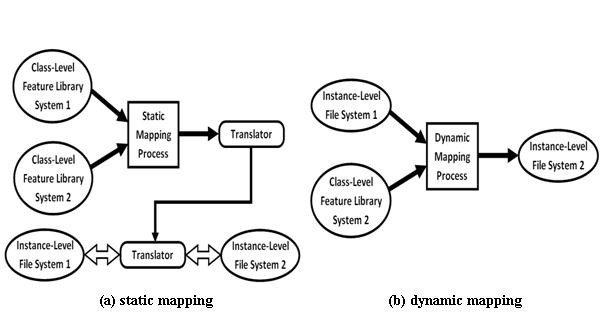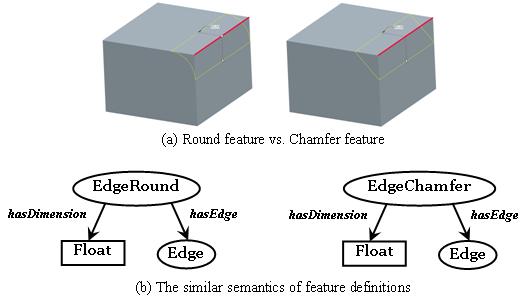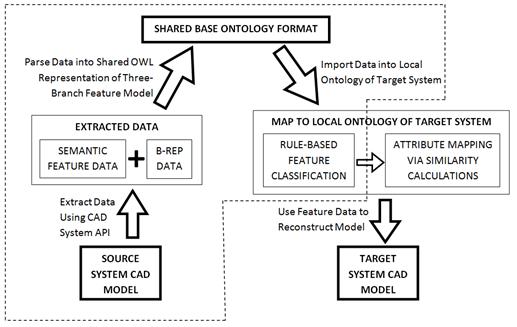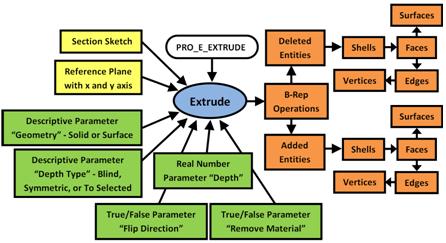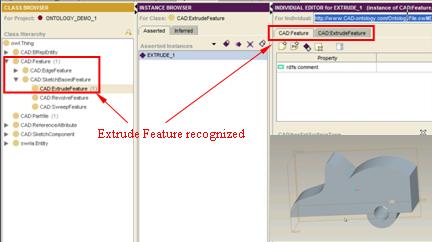Project: Interoperability in CAD and Additive Manufacturing
The objective of this research is to develop new enabling technologies to support complete information exchange between computer-aided design (CAD) tools without loss of design intent, as well as verifiable addtive manufacturing processes.
Ontology based Feature Mapping and Verification
Data interoperability between CAD systems remains a major obstacle in the information integration and exchange in a collaborative engineering environment. The use of CAD data exchange standards causes the loss of design intent such as construction history, features, parameters, and constraints, whereas existing research on feature-based data exchange only focuses on class-level feature definitions and does not support instance-level verification, which causes ambiguity in data exchange. A shared base ontology is used to convey the most fundamental elements of CAD systems for geometry and topology, which is to both maximize flexibility and minimize information loss. Instance-level generic feature information in the form of the base ontology is then classified automatically to local ontologies of individual CAD systems during the rule-based mapping and verification process. Such mapping process is done under the situation that the software vendor of the target system has absolutely no knowledge about the source system. Therefore, the intellectual property of the source system is fully protected, and true openness and scalability are ensured.
Process-Oriented Verifiable Additive Manufacturing Data Exchange
Traditional data exchange formats for additive manufacturing are geometry oriented. The lack of design and manufacturing intent causes the inconsistency in manufactured products. A new process-oriented data exchange scheme is developed so that users can specify and verify manufacturing processes to ensure the quality of products.
